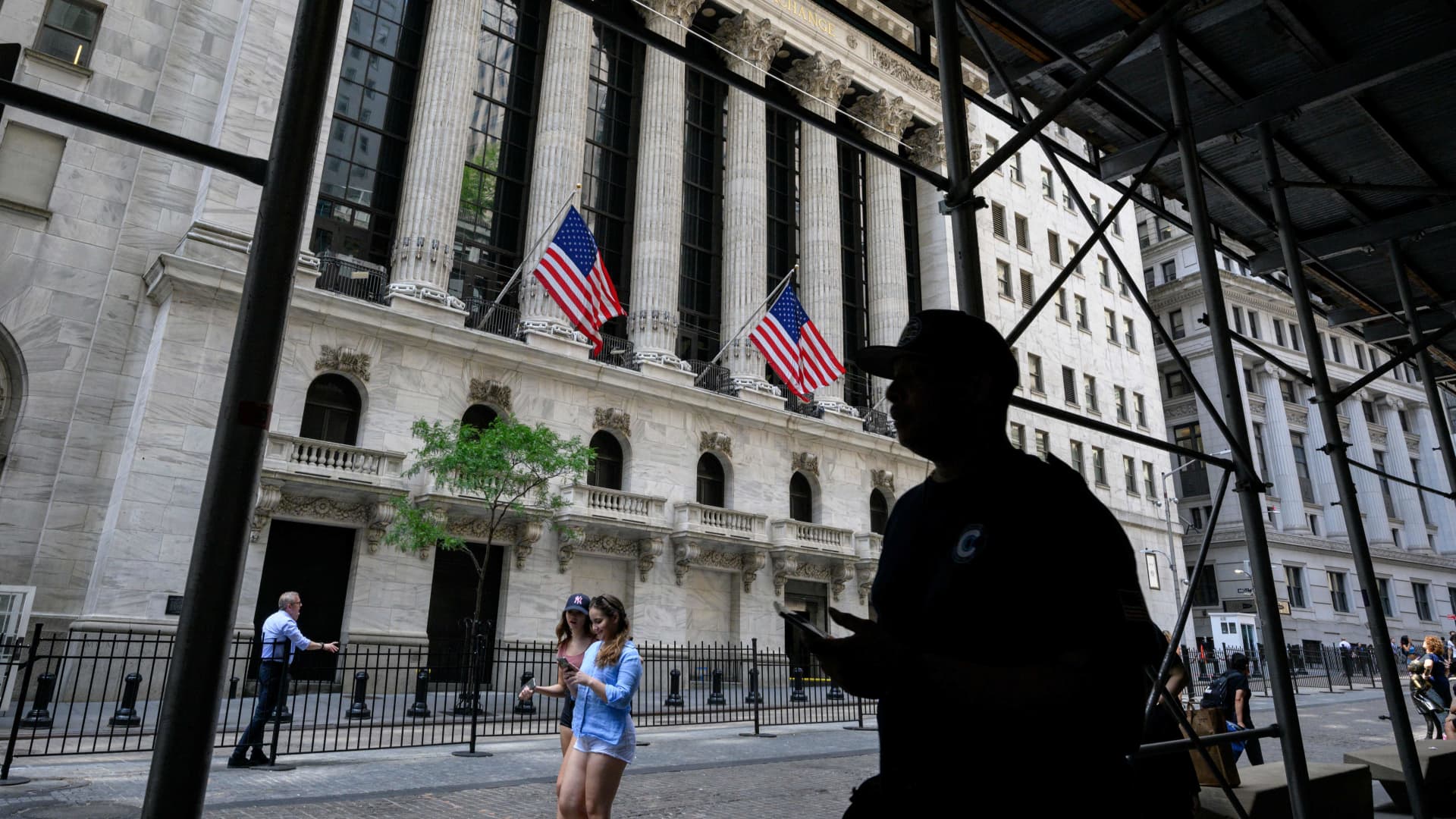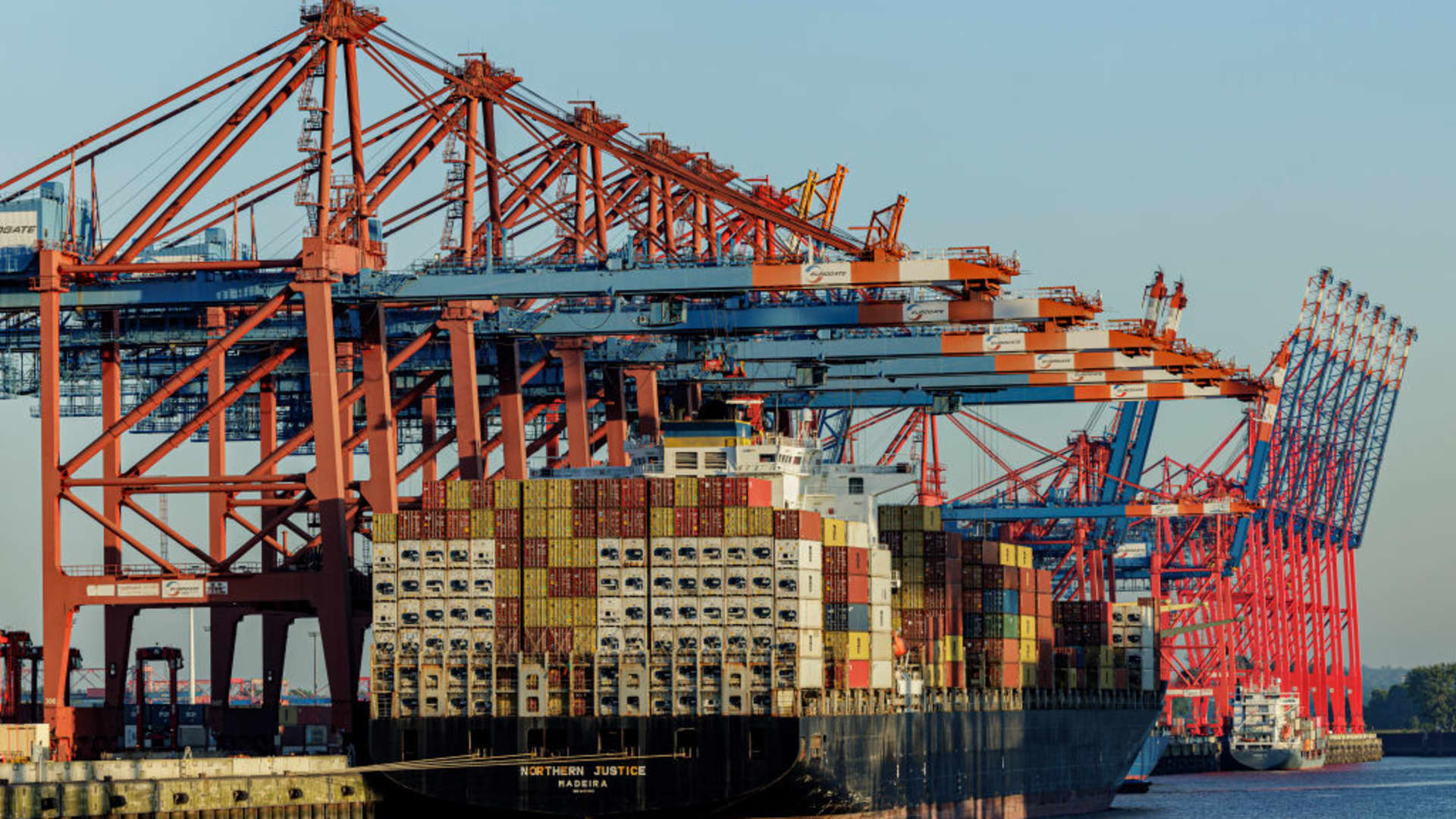Energy
Thursday, August 29th, 2024 2:01 pm EDT
Key Points
- IAEA’s Objectivity and Safety Concerns: Rafael Grossi, the head of the International Atomic Energy Agency (IAEA), defended the agency’s objective assessment of the Kursk nuclear facility amidst calls from Russia for increased objectivity. Grossi emphasized that while the Kursk plant is vulnerable to potential military strikes, the inherent danger is not due to the reactor technology itself but rather the strategic significance of such facilities in conflict zones.
- Russian Accusations and IAEA Response: Russia accused Ukraine of attempting a drone strike on the Kursk nuclear plant, a claim that CNBC could not independently verify. In response, Grossi highlighted that the Kursk plant, with its Soviet-era RBMK reactors, is exposed due to its lack of a reinforced roof, which could lead to significant risks if attacked. Grossi’s inspection found the plant operating in relatively normal conditions but noted signs of potential past military impacts.
- Broader Nuclear Safety Concerns: The inspection and Grossi’s statements come amid heightened nuclear safety concerns due to ongoing military conflicts between Russia and Ukraine. The situation has intensified since Russia’s invasion of Ukraine in February 2022 and the subsequent occupation of the Zaporizhzhia nuclear plant. The Ukrainian mission to the IAEA reported that Russian attacks on Ukraine’s energy infrastructure pose a serious risk to the stable operation of nuclear facilities and the safety of millions of people.
Rafael Grossi, the head of the International Atomic Energy Agency (IAEA), has responded to recent Russian calls for greater objectivity in evaluating nuclear safety amid the ongoing conflict in Ukraine. Following an inspection of the Kursk nuclear facility, Grossi addressed concerns raised by Russia about the safety of the plant. Russia had accused Ukraine of attempting a drone strike on the Kursk plant, which is situated in a region experiencing intense cross-border conflict since early August. The incident’s specifics remain unverified by CNBC, and the Ukrainian Ministry of Foreign Affairs has yet to comment.
Grossi emphasized the need for objective assessments of nuclear risks without fueling hysteria. He acknowledged that while the Kursk plant’s reactor core is not inherently dangerous due to its technology, the facility is vulnerable to potential military strikes due to its lack of a reinforced roof. This vulnerability could pose a risk of radioactive release if attacked. Grossi described the plant’s current state as relatively normal but noted signs of possible past military impacts around the facility’s perimeter.
Russian officials have requested more objective reporting from the IAEA, emphasizing the need for factual and unbiased assessments to prevent catastrophic scenarios. Maria Zakharova, a spokesperson for the Russian foreign ministry, criticized the IAEA for not fully aligning with Russia’s perspective and called for more clarity in their reports.
Grossi’s inspection comes amidst heightened nuclear concerns due to the conflict between Russia and Ukraine, which intensified following Russia’s invasion in February 2022 and its occupation of the Zaporizhzhia nuclear plant, Europe’s largest. The risk of nuclear incidents has been exacerbated by recent Ukrainian counter-offensives and ongoing attacks on infrastructure. The Ukrainian mission to the IAEA reported disruptions in the operation of nuclear plants in Ukraine due to Russian strikes on the country’s energy infrastructure, heightening concerns about the safety and stability of nuclear facilities.
The situation underscores the critical need for careful monitoring and transparent reporting to ensure nuclear safety amid ongoing military conflicts.
For the full original article on CNBC, please click here: https://www.cnbc.com/2024/08/29/un-nuclear-watchdog-chief-pushes-back-on-moscows-calls-for-objectivity-after-kursk-plant-visit.html




